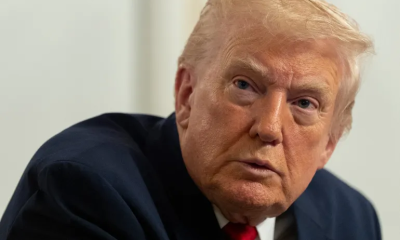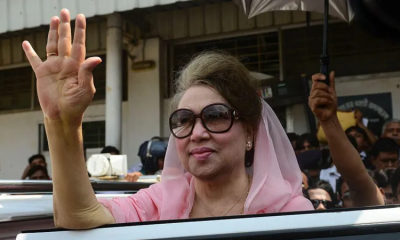News
Biden administration throws its weight behind new Geneva resolution

by Shamindra Ferdinando
Ahead of the 46th sessions of the Geneva-based United Nations Human Rights Council (UNHRC) scheduled to begin later this month, newly elected US President Joe Biden’s Democratic Party has raised Sri Lanka accountability issues in a recently submitted Resolution, with the focus on appointment of military officials, including that of Gen. Shavendra Silva as the Commander of the Army.
The UNHRC consists of 47 countries divided into five groups. The UK took over Sri Lanka matter in the wake of the US quitting the UNHRC in June 2018. It now heads the Sri Lanka’s Core Group.
Silva, the first General Officer Commanding (GoC) of the celebrated 58 Division was named the Commander of the Army by President Maithripala Sirisena.
Sirisena’s successor, Gotabaya Rajapaka, appointed Silva the Chief of Defence Staff (CDS) and subsequently promoted him to the rank of General.
Democratic Party Congressman Brad Sherman, a ‘very’ close associate of professional activists within the Global Tamil Diaspora has tabled a Resolution in the U.S. Congress charging President Gotabaya Rajapaksa administration of engaging in harassment and intimidation of human rights defenders and enforced disappearances, and protecting war criminals, Daya Gamage, former political specialist of the US State Department said.
Bradley James Sherman is the US Congressman representing California’s 30th congressional district since 2013.
The author of Tamil Tigers’ debt to America Gamage explained how the change in US administration had started to bring in ‘initial bearing’ on Sri Lanka with Congressman Sherman making a move. Gamage said that the US stand on the accountability issues should be examined against the backdrop of a statement attributed to Foreign Secretary Admiral Jayanath Colombage that the political change wouldn’t have any bearing on Sri Lanka.
Gamage said that in spite of the US not being a member of the UNHRC, it would throw its full weight behind the push for a new Resolution to be moved at the forthcoming sessions.
Here are four areas the Congressional Resolution on Sri Lanka has touched:
Whereas the Government of Sri Lanka has promoted high ranking military officials suspected of forcibly disappearing persons and bearing responsibility for war crimes, including Lieutenant General Shavendra Silva, and has failed to hold accountable other current military officials accused of war crimes.
Whereas, during the 26-year civil war ending in 2009 between government forces and the Liberation Tigers of Tamil Eelam, tens of thousands of Tamils were forcibly disappeared by the police, military, and paramilitary operatives
Whereas, according to a 2020 United Nations Special Rapporteur’s report, “no observable progress has been made on pending cases, including habeas corpus applications into the disappearance of Tamil Tigers and members of their families who surrendered during the final days of the war”.
Whereas lawyers, human rights defenders, and victims involved in cases of enforced disappearances face intimidation, harassment, and violence, particularly since Rajapaksa became President.
The Island learns that since the initial government reaction to the US slapping travel ban on Gen. Shavendra Silva and his immediate family members an year ago, the government hadn’t made representations to the US or UNHRC. The government ignored an opportunity to take up the Army Commander’s issue in the wake of the recent declaration made by the then US Secretary of State Mike Pompeo regarding the Army Commander’s matter. When the media raised the US travel ban on the Army Commander at a joint media conference given by Pompeo and Foreign Minister Dinesh Gunawardena, the one-time CIA Chief said “All right. Thank you. I think there were three questions there. The last one, look, it’s a legal process in the United States. We’ll always continue to review it. We want to make sure we get it technically, factually, and legally right. We’ll continue to do that.”
Well informed sources said that the UK spearheading the moves for a new Resolution at the UNHRC had told the Sri Lankan government in no uncertain terms that it was determined to go ahead with the project. Sources said that Secretary of State for Foreign, Commonwealth and Development Affairs and the Minister for South Asia Lord Ahmad of Wimbledon explained their stand to Minister Gunawardena and the Sri Lankan High Commission in London.
Tamil political sources said that they had the required support to secure a new Resolution at the forthcoming session. Sources said that a petition forwarded by three Tamil political parties represented in parliament to UNHRC members as well as the HR Commissioner received approval from those who mattered. Sources pointed out that the HR Commissioner’s latest report on Sri Lanka took the Tamil parties’ petition into consideration.
News
Dr. Bellana: “I was removed as NHSL Deputy Director for exposing Rs. 900 mn fraud”

Interdicted Deputy Director at the National Hospital, Sri Lanka (NHSL) Dr. Rukshan Bellana yesterday (29) alleged that the powers that be moved against him for seeking the CIABOC (Commission to Investigate Allegations of Bribery or Corruption) investigation into a massive fraud at the NHSL laboratory.
Dr. Bellana said so in response to The Island query regarding the circumstances the Health Ministry interdicted him on 18 December, through a letter, as directed by the Health Committee of the Public Service (PSC) Commission. “That letter has been signed by an Additional Secretary, as Health Secretary Dr. Anil Jasinghe was overseas,” Dr. Bellana said.
Dr. Bellana stated that the government had paid for reagents, contaminated or close to expiry dates, obtained from a leading local medical supplier, since 2022. He emphasised that his complaint to the CIABOC, and subsequent complaint to the Criminal Investigation Department (CID), were entirely based on the issues raised by the National Audit Office (NAO).
Responding to another query, Dr. Bellana said that the public funds, amounting to Rs. 900 mn, had been spent on chemical reagents past expiry dates. Regardless of the intervention made by the NAO, the NHSL continued to procure supplies from the same company, Dr. Bellana said, adding that he had received the unconditional support of the civil society. Among them were Dr. Chamal Sanjeewa, President of Medical and Civil Rights Professional Association of Doctors (MCPA), President of Academy of Health Professionals Ravi Kumudesh, and leader of Mage Rata Sanjaya Mahawatta.
Dr. Bellana said that he had complained about the scam to the CIABOC in June this year.
Dr. Chamal Sanjeewa, who also lodged a complaint with CIABOC, regarding the same matter, is on record as having said in September this year that the reagents had been procured over a three-year period without the proper approval of the Medical Supplies Division of the Ministry. Dr. Sanjeewa has alleged that some of the reagents were either contaminated or close to expiry dates, while contracts had been given to a single company at unapproved prices.
Dr. Bellana said that had there been a proper system for CIABOC and law enforcement authorities to act on findings made by the NAO they wouldn’t have personally intervened in the NHSL laboratory matter. “Parliament should look into this. Did Parliament take up the NHSL laboratory matter at the relevant watchdog committee or at the Sectoral Oversight Committee that handled health?” Dr. Bellana asked.
Asked whether the letter that informed him of his interdiction gave any specific reason for the action taken, Dr. Bellana said the Ministry had found fault with him for speaking to the media. The irate ex-official said that he never hesitated to take a stand against injustice. “When former Health Minister Keheliya Rambukwella was accused of corruption, pertaining to medical procurement, I condemned the Minister. Lambasted those responsible for wrongdoings.”
Dr. Bellana said that the NAO had dealt with mega crime involving the public and private sector. “That is the undeniable truth. Parliament should look into this as public money is its responsibility. Having vowed to stamp out corruption, the NPP was allowing and encouraging those who had been making money at the expense of the sick, Dr. Bellana said.
Dr. Bellana said that as many as 10,000 tests were conducted daily at the NHSL. The racketeers had been active during Aragalaya as the NHSL and the private supplier reached agreement in 2022 and the process continued even after the last presidential election, conducted in September 2024.
Dr. Bellana said that the long delay in finalising the Auditor General’s appointment exposed the government. If those holding high political office were genuinely interested in fighting corruption, they wouldn’t have allowed that Office of AG stay vacant even for a day.
Dr. Bellana noted the tough statements issued by the Bar Association, Transparency International Sri Lanka and the Committee on Public Finance demanding the immediate appointment of AG.
Health Ministry officials were not available for comment.
By Shamindra Ferdinando
News
BIA unions demand bonuses equal to five months’ basic salaries

BIA unions, including those affiliated to political parties, are demanding bonuses equal to five months’ basic salaries.
A group of workers yesterday (29) protested outside BIA urging the Airport and Aviation Services Sri Lanka (Private) Ltd to increase their bonuses. They claimed that the Chairman of Airport and Aviation Services Sri Lanka (Private) Ltd., Air Vice Marshal (Retd) Harsha Abeywickrama, had assured them that they would be paid bonuses worth five times their basic salaries.
The SriLankan Nidahas Sewaka Sangamaya (SLNSS) of the airport, the Podujana Sewaka Sangamaya, the Pragathishili Sewaka Sangamaya, the Jathika Sevaka Sangamaya, and the SLNSS of SriLankan Airlines joined the protest.
News
People warned of rising water levels at Kotmale reservoir
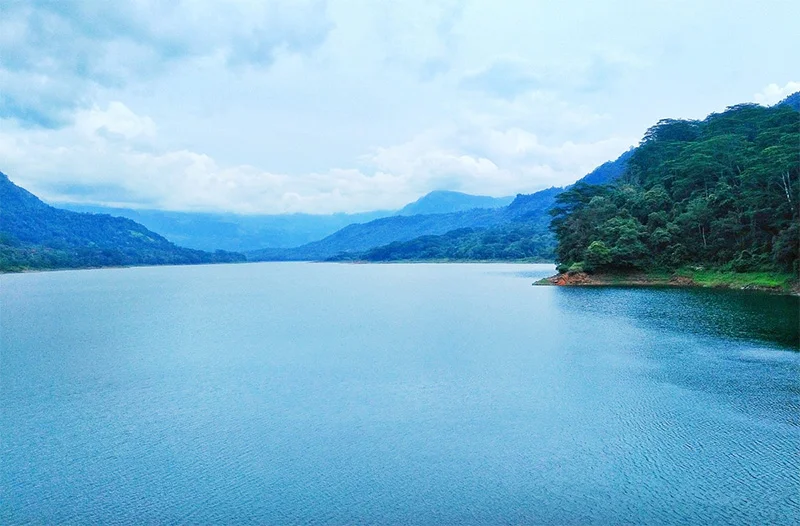
The Sri Lanka Mahaweli Authority has issued an urgent safety warning to residents living along the banks of the Kotmale Oya and the Mahaweli River, as water levels in the Kotmale Reservoir are reaching maximum capacity.
According to a special weather advisory issued by the Department of Meteorology on December 26, 2025, heavy rainfall is expected in the catchment areas over the coming days.
In response, the Mahaweli Authority released a statement on December 27, warning that spill gates may have to be opened to manage the water flow.
Eng. A.M.A.K. Seneviratne, Resident Engineer and Deputy Director of the Kotmale Reservoir, stated that the opening of spill gates would lead to a significant rise in the water levels of both the Kotmale Oya and the Mahaweli River.
Areas on Alert
Residents in the following Divisional Secretariat divisions are urged to remain extra vigilant:
• Nuwara Eliya District: Kotmale West and Kotmale East.
• Kandy District: Udapalatha, Udunuwara, Doluwa, Pasbage Korale, and Ganga Ihala Korale.
Authorities have advised the public in these low-lying and river-adjacent areas to monitor the situation closely and take necessary precautions to ensure their safety and the protection of their property.
By S.K. Samaranayake
-

 News5 days ago
News5 days agoBritish MP calls on Foreign Secretary to expand sanction package against ‘Sri Lankan war criminals’
-

 Sports5 days ago
Sports5 days agoChief selector’s remarks disappointing says Mickey Arthur
-

 News4 days ago
News4 days agoStreet vendors banned from Kandy City
-

 Opinion5 days ago
Opinion5 days agoDisasters do not destroy nations; the refusal to change does
-

 News6 days ago
News6 days agoSri Lanka’s coastline faces unfolding catastrophe: Expert
-

 News4 days ago
News4 days agoLankan aircrew fly daring UN Medevac in hostile conditions in Africa
-
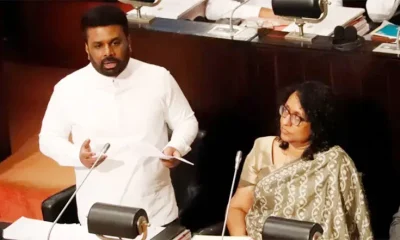
 Midweek Review6 days ago
Midweek Review6 days agoYear ends with the NPP govt. on the back foot
-
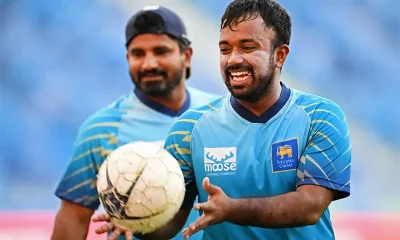
 Sports6 days ago
Sports6 days agoLife after the armband for Asalanka




